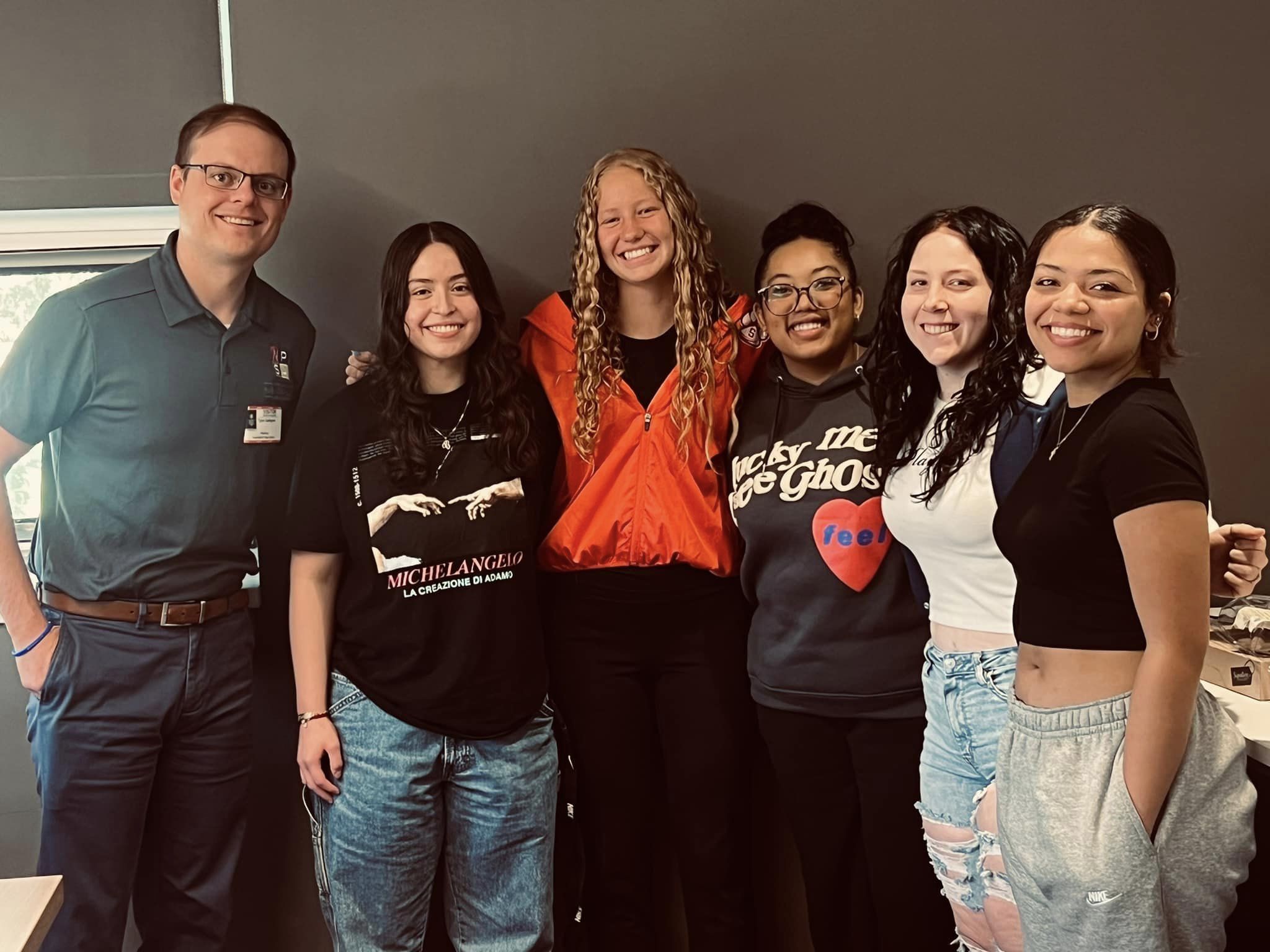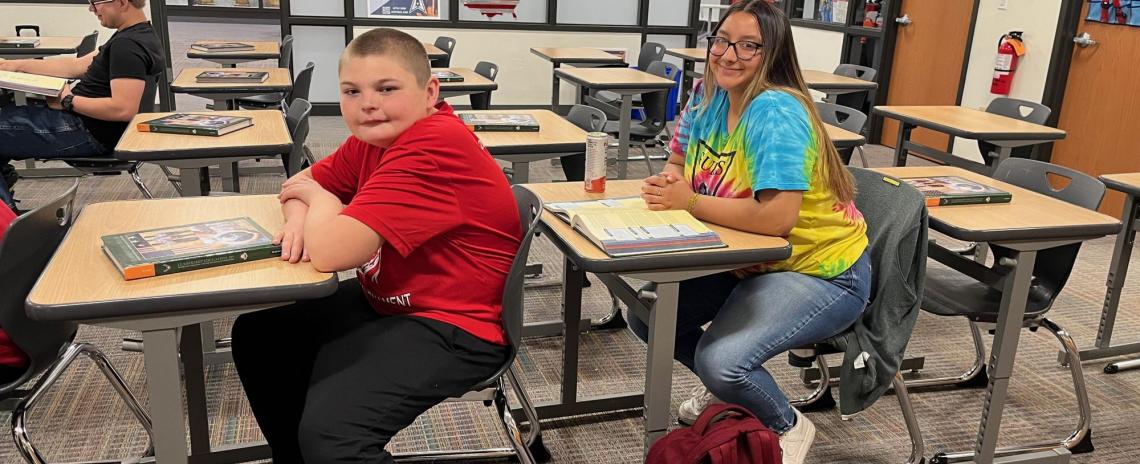The Peer Paras of The Panhandle: Seniors are heart and soul of Scottsbluff's groundbreaking special education program
The Peer Paras of The Panhandle: Seniors are heart and soul of Scottsbluff's groundbreaking special education program
 By Tyler Dahlgren
By Tyler Dahlgren
Part One: Setting the Stage
Their days in high school dwindling, five Scottsbluff seniors took a break from the often-hectic hustle and bustle of mid-May and picked a seat around a table in a quiet corner conference room.
It was early in the morning on a sunny Tuesday in The Panhandle, and their spirited demeanor matched the glow coming through the tall windows around them. In a few short days, the group would officially graduate as Scottsbluff High School’s Class of 2024.
The stage was already set. The diplomas were ready. The future beckons. Rightfully, they were excited, though I admit I may have initially miscalculated why. You see, graduation was on their minds. But their school’s Peer Para Internship program was in their hearts, and that’s what they were there to share.
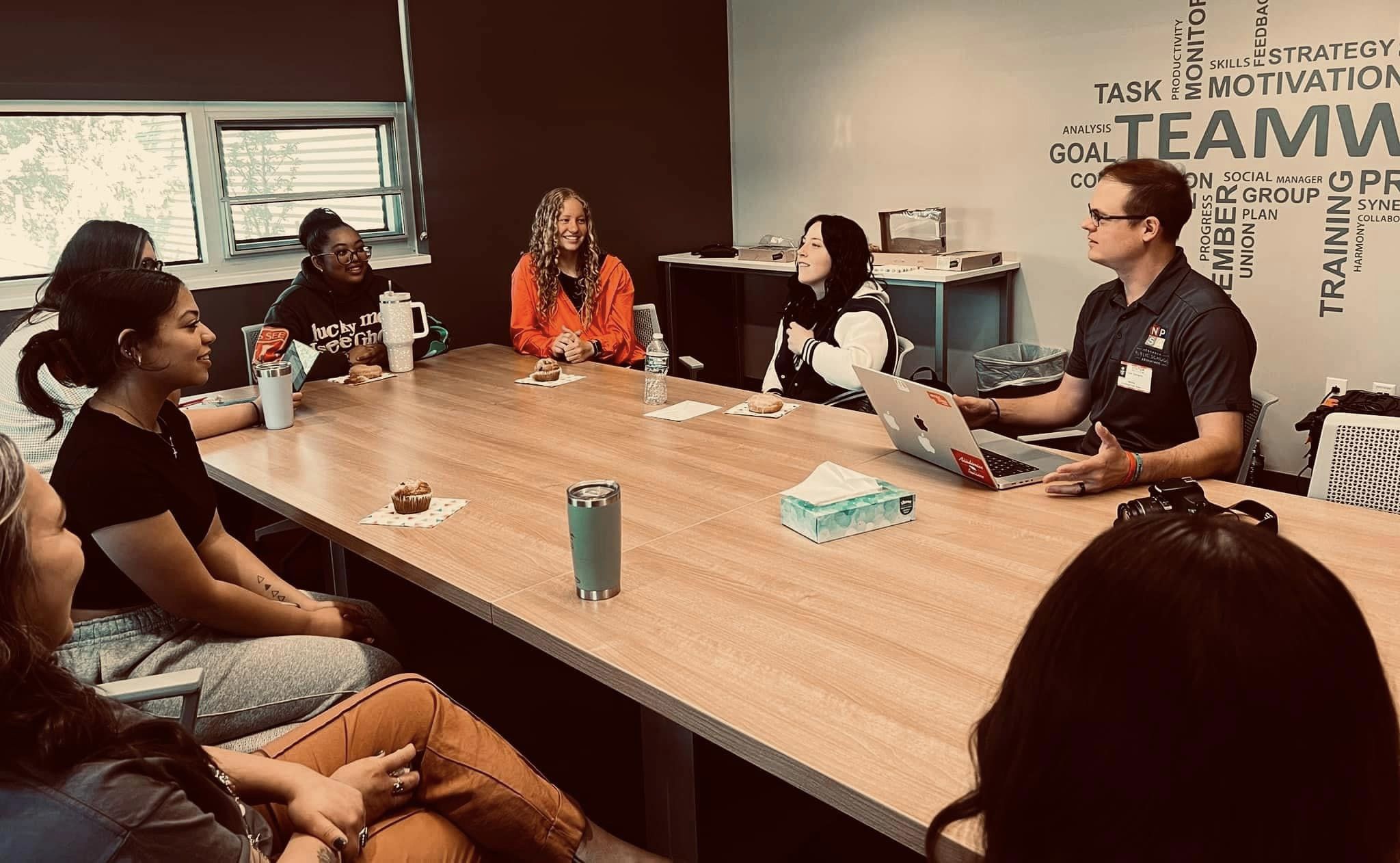
And so they did. For well over an hour total, we dove head first into the second-year program that has totally reimagined the high school experience for special education students at Scottsbluff while changing the lives of 13 senior student paras.
“These young people are amazing,” said special education coordinator Stacy Moore, beckoning to the table. “They are the heartbeat of the program. This would not be where it is without good kids that have the ability to see the importance of developing true friendships.”
Friendship. If there is an overarching theme to the story you’re about to read, let it be that.
A world without friends would be rather colorless and bleak, but this conference room is bright and these seniors are smiling.
They’re ready to share their story.


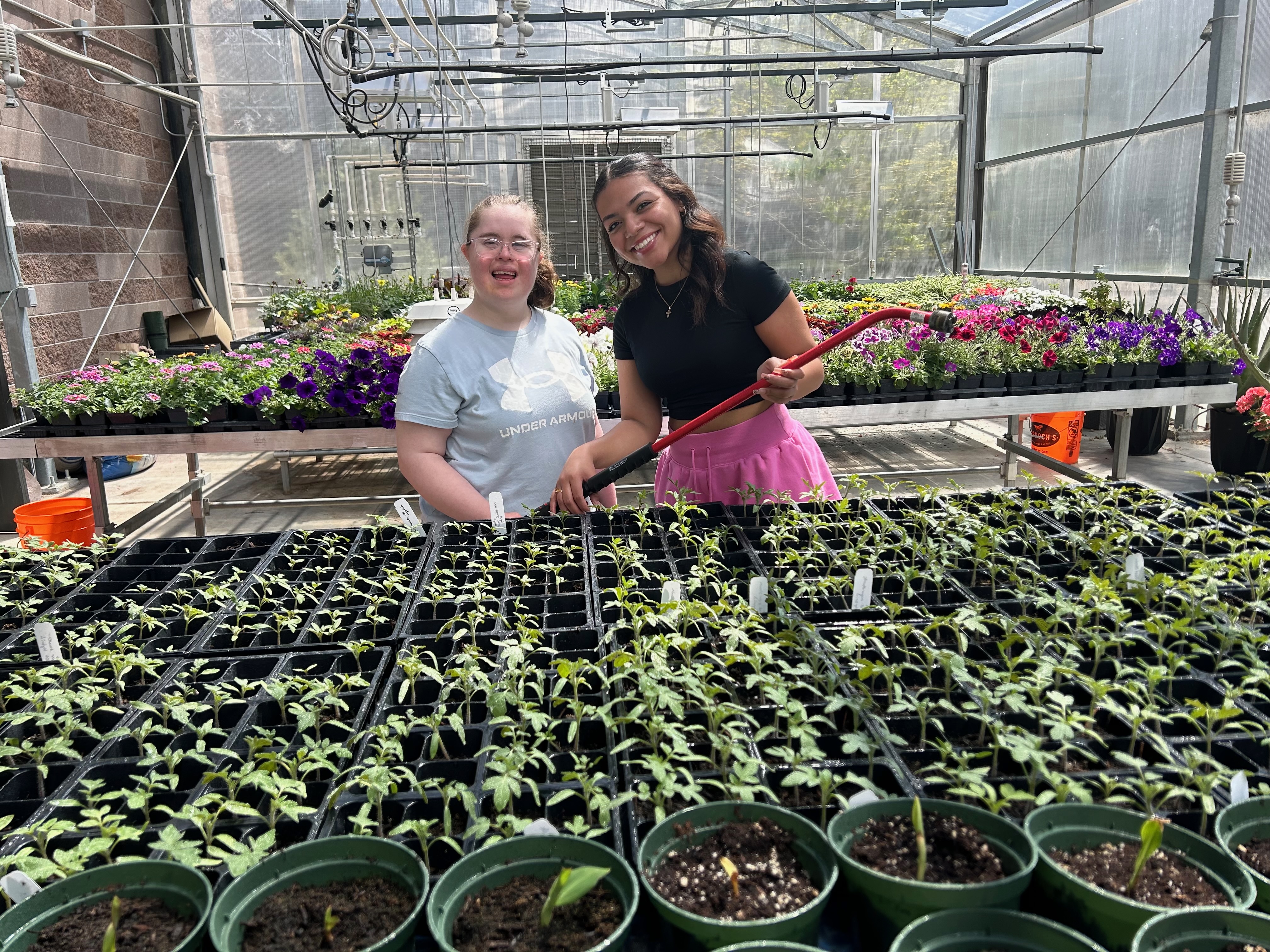
Part Two: The Challenge
Its second year now in the books, Scottsbluff’s wildly innovative Peer Para Internship program was born out of adversity, believe it or not.
The district’s special education department was proud of the inclusion practices that were in place and oblivious to any concerns about a disconnect between their kids and the rest of the student population. That changed when the mother of a student with Down syndrome called with some hard-hitting questions
“I know that you say she’s included in the classroom, but is she really included? Does she have friends? Do students talk to her? Does she engage in the activities and the conversations that happen in the classroom?”
Those were good questions, Moore thought, and they surely deserved an answer. So the special education staff took a long look in the mirror. They visited general education classrooms and observed their students’ interactions. It didn’t take long to discover that the parent was right.
“She was in there, she was taking up a place and a space, but the adult para was doing all of the talking for her and even interacting with the teacher for her,” Moore said. “I started going around to other classes where we have students with more significant disabilities, and I saw that it was more of the same. Then we just decided, as a department, that that wasn’t okay. That was in the fall semester. By spring, we were starting the Peer Para Internship program.”
Research into similar programs was marginally unsuccessful. There were plenty of peer programs at the elementary level, but they learned what they had in mind wasn’t being done in high schools. Not in Nebraska, and not across the country.
They dug in and got to work. The stakes were too high to do anything else.
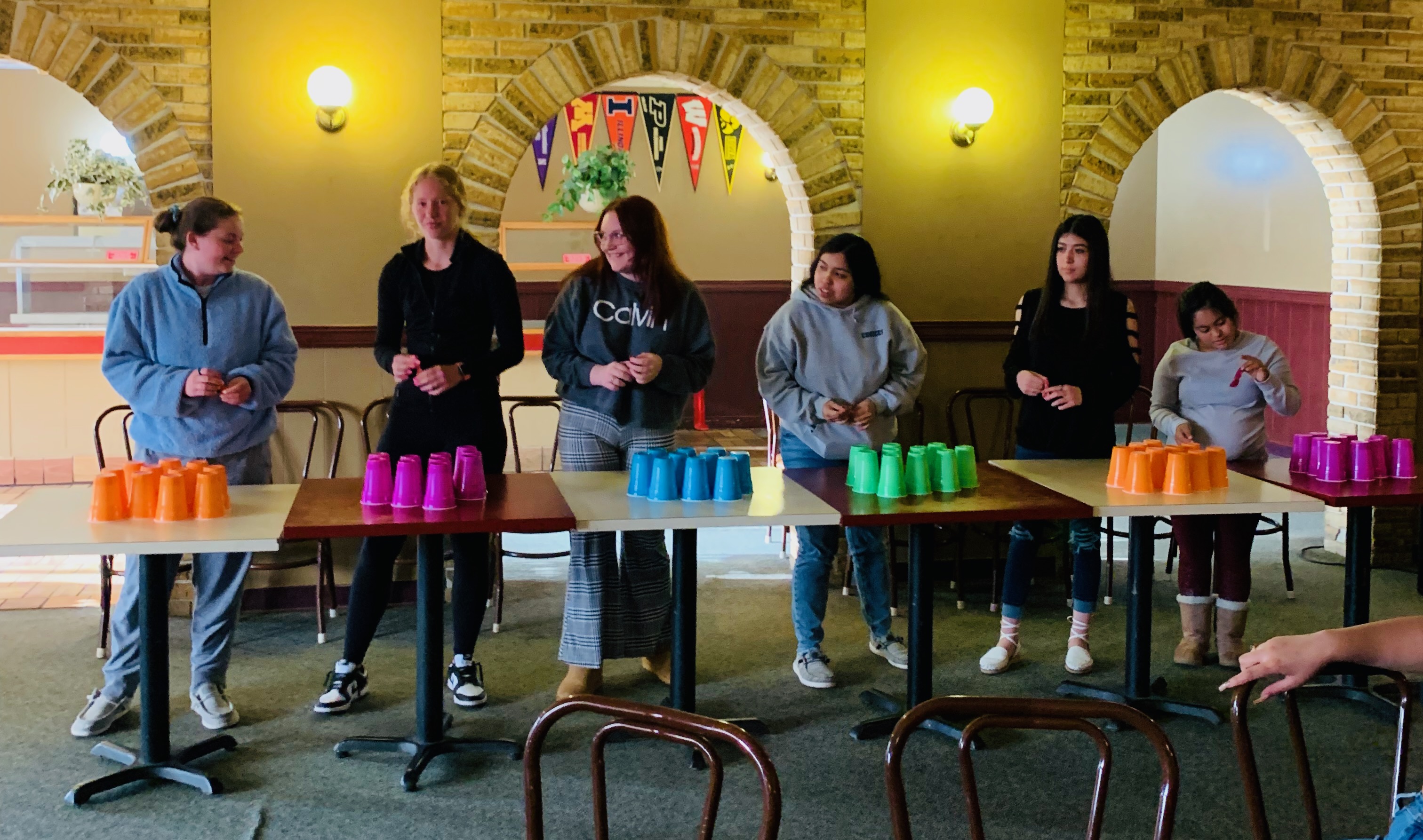
“We talked to the school counselors to see if there were students who were interested in education or who would be interested in working with students with disabilities,” said Moore. “We just kind of built the plane while we were flying it. That’s really the truth.”
That first semester, a dozen seniors signed up to be peer paras. The majority were prospective teachers, but that’s far from a requirement. The seniors, many involved in an array of sports and activities, endured a two-week training program that began at seven o’clock in the morning. They signed a confidentiality agreement and completed eye-opening disability, autism and visually-impaired simulations before coming face-to-face with their match at a meet and greet.
That’s where the magic first happened. That’s when Moore and Wendy Kemling, Scottsbluff’s Executive Director of Student Services and the program’s co-creator, knew they’d hit the mark.
“The coolest part is being in the classroom with the kids during those first two weeks,” said special education teacher Rebecca DeWitt. “That’s where their friendships really start. It is neat to see from Day One to Day 14 how they build those relationships, and my kids’ eyes just light up when the peer paras come in. They’re so excited to see each other. That’s my favorite part.”
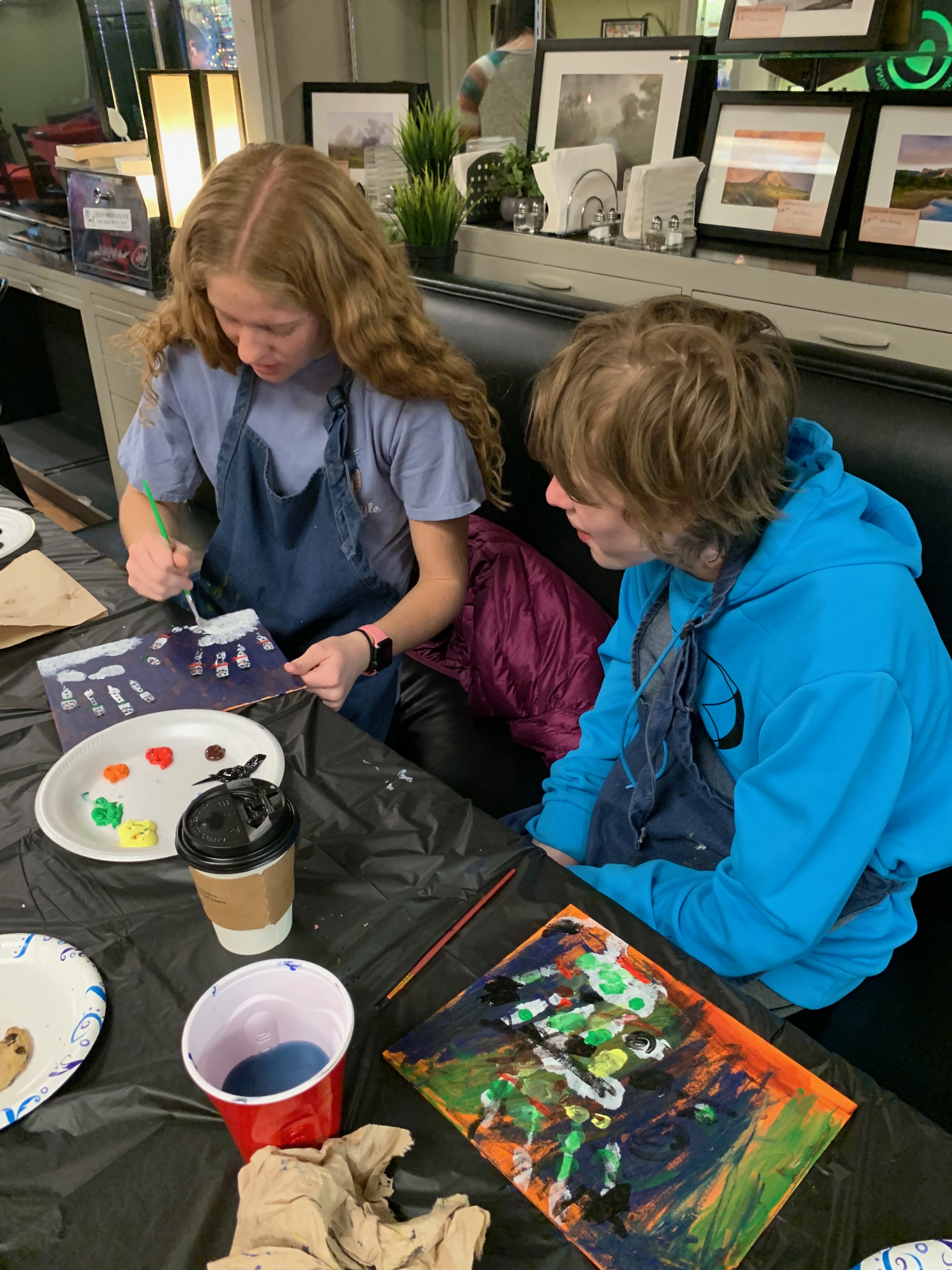
The theme for the program emerged quickly: We’re all the same, but beautifully different.
“We have two needs, to love and to be loved, and it doesn’t matter if you have a disability or you don’t have a disability,” said Moore. “We all have the same needs. When the paras give their speeches to their students at the end of the semester, we’re always surprised by the uniformity of their experience. They all say, ‘I really thought I was going to go and make a big difference in the lives of these kids, but I’m the one who changed. I realized that they’re just like me.’”
Part Three: The Heart and Soul
If Ashton’s smiling, then so is Chloe Rendon.
When the senior finds herself tossing and turning in the middle of the night, her student’s voice will often pop into her head. She can’t help but to laugh and count the hours until she’s back at school working with Ashton.
Usually, that does the trick, and she falls asleep.
“If you don’t know Ashton, he’s always smiling,” said Rendon, who hopes to become a teacher, possibly in special education, down the road. “Every day, he will make you smile. He’s just someone who will literally brighten up your day. Just thinking about him makes me smile.”
Senior Lexxus Thrash is a cheerleader who’s active in Ed Rising, FCCLA and a handful of other things. She’s also the big cousin of two children with special needs. A future educator herself, Thrash signed up to be a para to gain perspective. If she sounds wise beyond her years, get used to it. That foresight is a sort of prerequisite for the seniors in the program.
“This is a lot more beneficial for us than it is for the students we’re working with,” Thrash said. “They don’t necessarily always understand why you’re there, why you’re working with them, but they’re always just happy that you are.”
Thrash’s match is a student named Jessica who she knew previously from the cheer team. She thinks back to the beginning of the year, about how quiet and reserved Jessica was, and, knowing what she knows now, has to laugh a little bit.
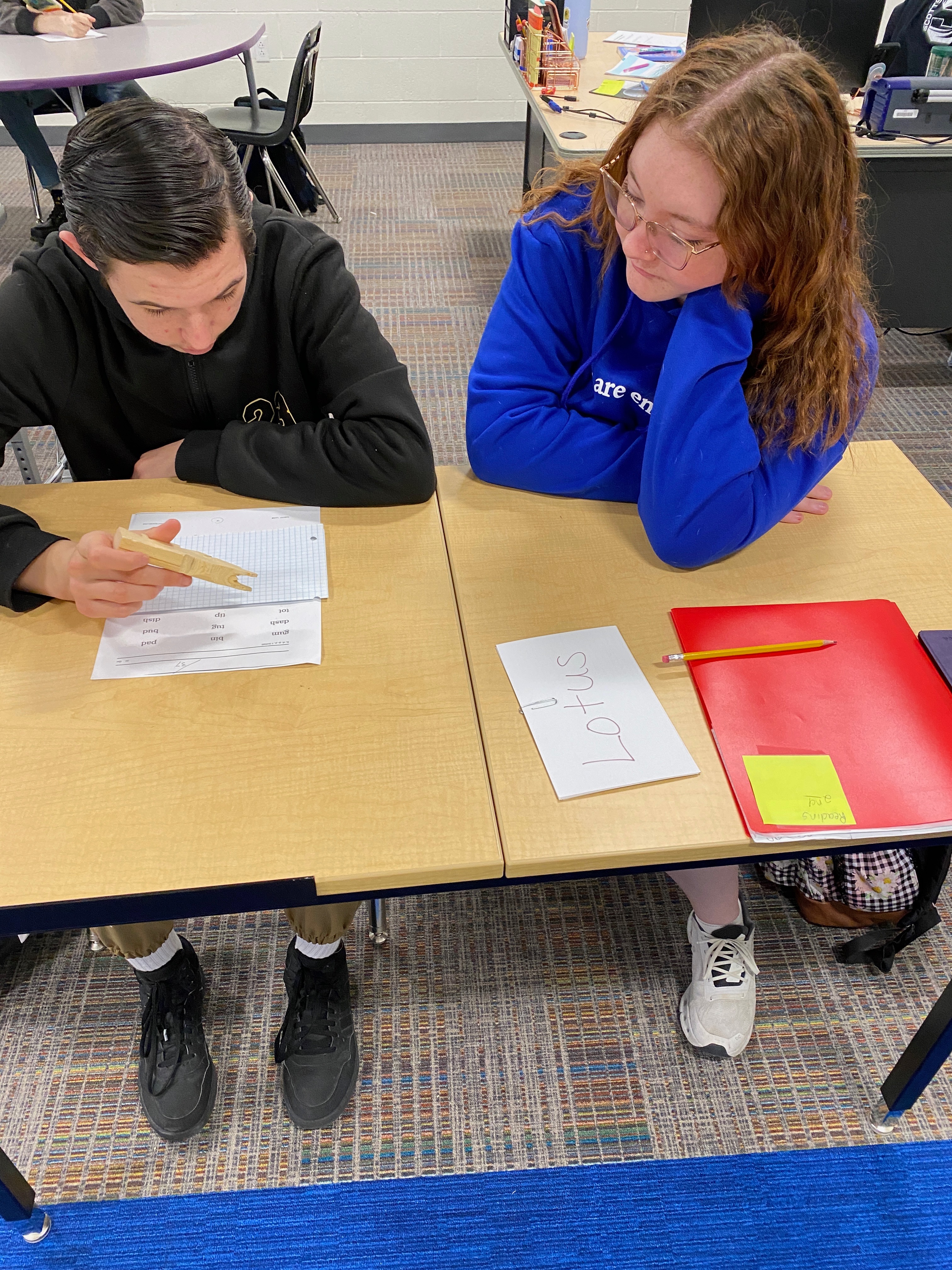
“Now I hear about everything,” Thrash chuckled. “I hear about church, the songs she loves to sing. We were singing songs in the hallway yesterday. I think she just brings out a happy part of me, something that’s not always easy to bring out while at school. I just get to let loose when I’m with her.”
Aspyn Andreas was following in her big sister’s footsteps when she signed up for the program at the beginning of the year. Her sister raved about the experience, and she’s another future educator, so it just made sense.
“I looked at it as the perfect opportunity to learn how to work with students with disabilities, and it’s really opened my eyes and made me want to be a teacher even more,” Andreas said. “When I step into the room with Noah, I feel like everything around me just goes away. I try to put all of my focus on him, because he deserves it.”
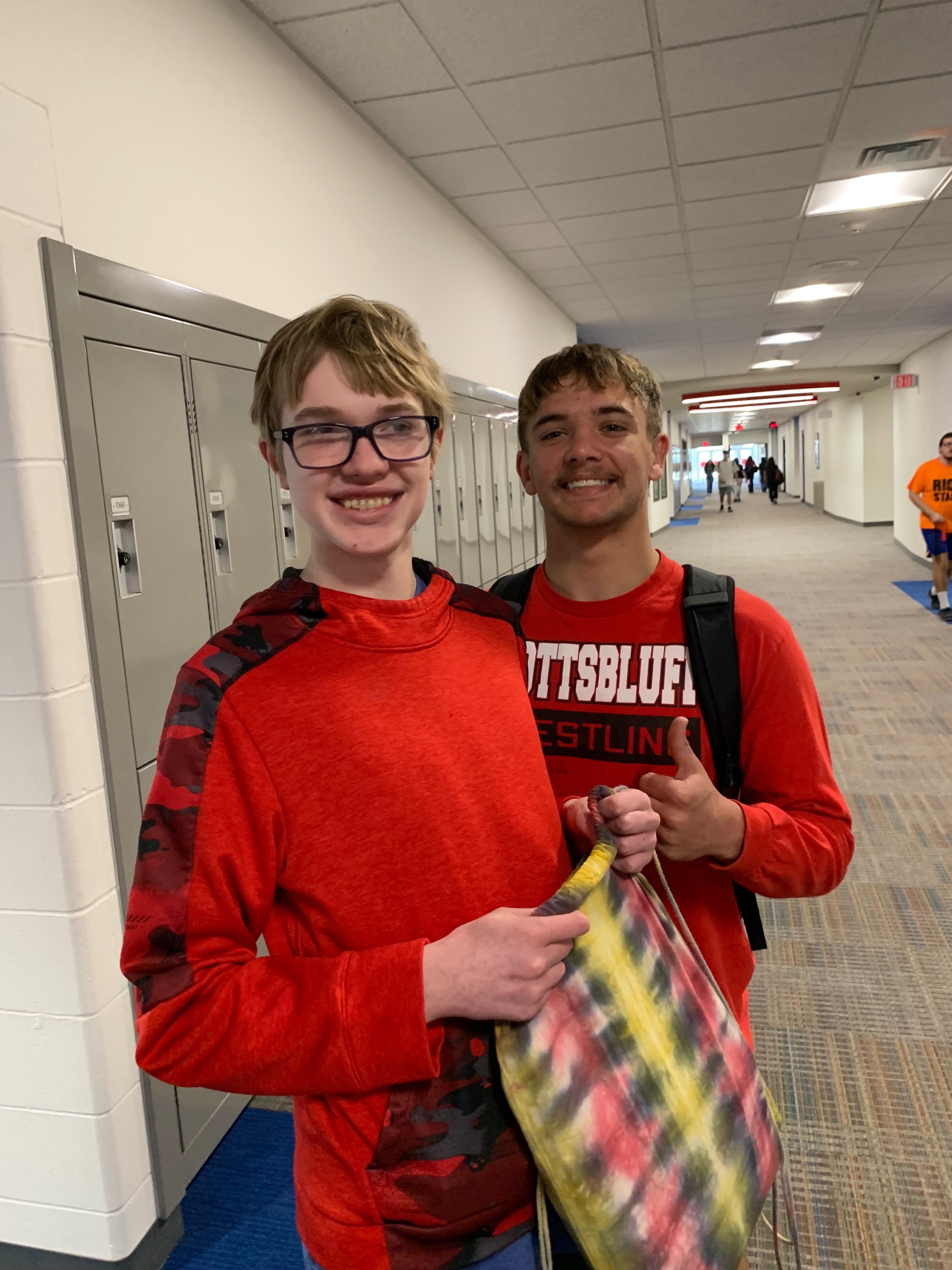
Brissia Diaz was looking to do something different during her final year in high school when she found the Peer Para Internship program and was matched with Josiah and his rocket of a right arm. The pair attended PE class together during the fall, where Diaz learned how to match his enthusiasm and how to duck.
“We’d play all of these games, and he would get so excited,” Diaz laughed. “His favorite game was dodgeball. He loved dodgeball. Sometimes, I had to sit out. I was afraid of getting hit by him. He threw the ball so hard.”
Diaz remained in PE for the spring semester, but was matched with a girl named Grace, who has stolen her heart in the matter of a few short months. They are two peas in a pod. Grace calls Brissia her best friend, and Brissia calls Grace the same.
“She just wants a friend and a buddy, so having me in there is really what keeps her going,” Diaz said. “It keeps me going, too. I’ll do whatever. I’ll run outside in slippers if she wants me to. I’ll play any game, even if it’s not my favorite. Grace just wants somebody to participate with, and it’s a special feeling getting to be that person.”
You could call senior Amari White and her match the quasi-celebrities of the group. Each morning, they’ll record themselves showing off their outfits of the day, or OOTDs as they’ve come to be known around the school.
“We really clicked instantly,” White said. “He doesn’t have the ability to communicate verbally, but we’ve developed our own way of communication. We have a strong connection, and I think we were paired really well together because we both get each other.”

White’s the outlier of the group. She doesn’t have any aspirations of becoming a teacher after college, and has chosen to pursue zoology at the next level. The experience has been unexplainably worthwhile and advantageous, she said.
“I would advise future students considering the program, because we have career academies here at Scottsbluff, to not just assume it’s for the education or human sciences students,” White said. “Because of this class, I’ve built connections and skills that I’m going to be able to use for the rest of my life. I know how to talk with people with disabilities. I know how to work with them. That’s pretty cool.”
The other four students nod their heads in approval. They’d all recommend the Peer Para Internship program to future Bearcats.
“You’ll make so many memories and you’ll form so many more relationships through it,” added Rendon. “You put your trust in the student, and they put their trust in you. The results are amazing.”
The district is placing a lot of trust in its 13 student paras, who have far exceeded their expectations. They’ve shouldered the load gracefully and admirably, a fine example of what can happen when students are empowered.
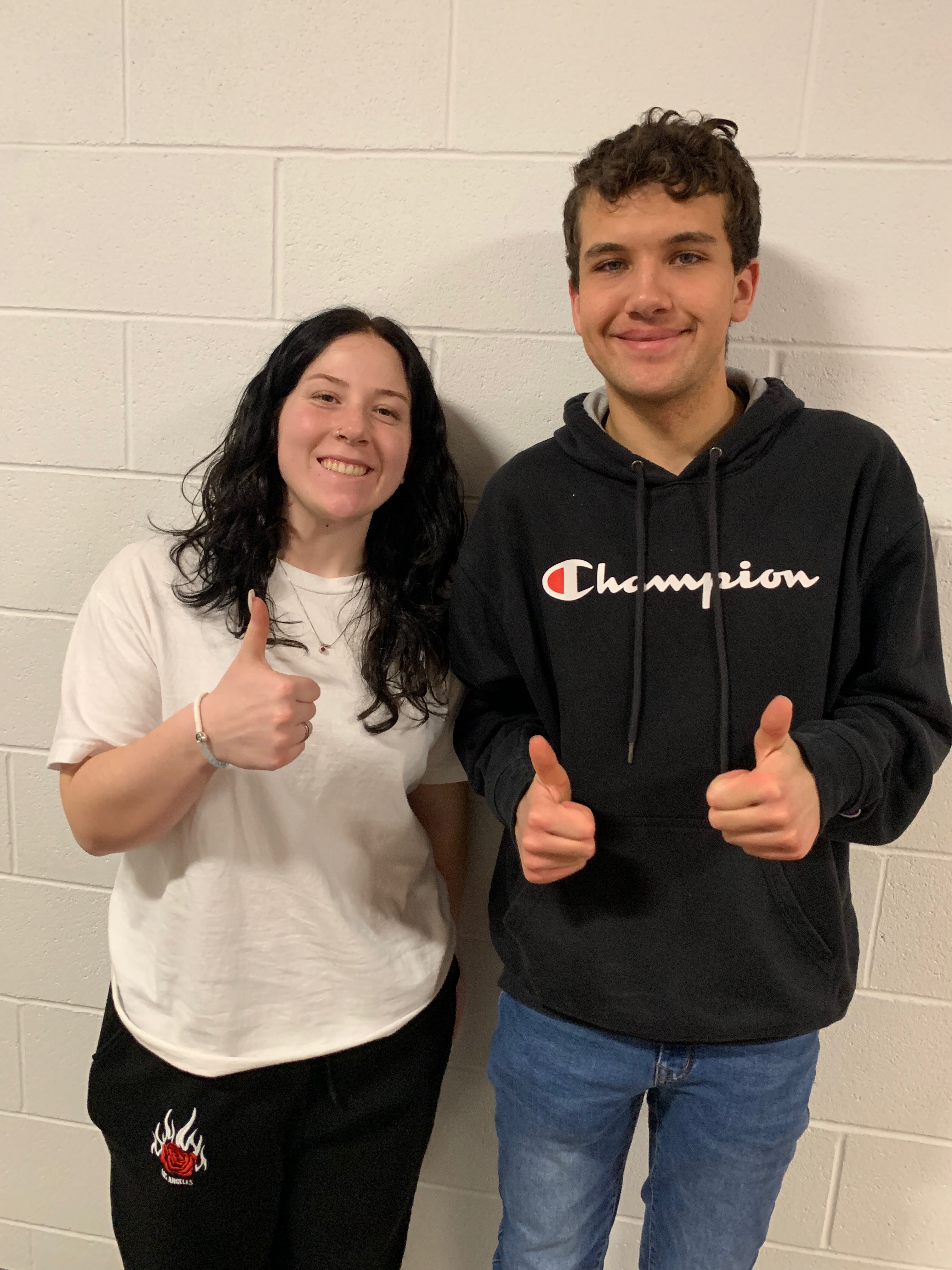
“Kids will rise to your expectations,” said DeWitt. “If you expect them to meet a certain standard, they will. If you don’t expect much from them, you’re not going to get anything out of them.”
Giving them trust, DeWitt continues, is important for their growth.
“The world is full of so many challenging and not-so-positive things they’re going to inevitably encounter,” said SHS assistant principal Kenna Urwiller. “So to present them with an opportunity to do something positive and to get out of the way and watch them take that and turn it into something amazing, it shows you that they do rise to the occasion. They learn that it feels good to do good.”
That’s not all the senior paras learn. Among all the lessons packed into a semester, there’s one in particular Thrash will carry with her forever. It’s one she learned from Jessica.
“She always holds kindness towards everybody, no matter what,” Thrash said. “Even if there are kids in the back of the room saying mean things to each other, even when she’s having a bad day, she’s always nice to everyone. She’s taught me to hold that same kindness towards people, to always treat people with kindness.”
Part Four: Party Time
The seniors may be days away from graduation, but these friendships are for life, and the party doesn’t stop when the day’s final bell rings.
The good times roll right along.
“One of the saddest statistics about students with more significant disabilities is how after they graduate, those friendships go away,” said Moore. “They end up being at home with their families or in a group home, but they don’t have the same friendships, interactions or social opportunities as they did before.”
With that in mind, Moore and the team set out to curate more opportunities for the paras and their students to interact outside of school hours. During a brainstorming session, DeWitt, an artist herself, suggested a “Paint n’ Sip” at a local coffee shop.
“When we got there, we were absolutely floored at how they were interacting,” said Moore. “Rebecca did a fantastic job with it. They orchestrated everything and made sure the kids were sitting with their paras.”
Moore watched as the coffee house filled with laughter and the sounds of selfies being snapped.
“There was so much joy,” said Urwiller. “It was pure happiness.”
Most recently, the group held a pizza party at Scottsbluff staple Arthur’s Pizza, an establishment known for employing adults with autism and cognitive disabilities. It’s been fun to see the community embrace the program, too.
“That’s what’s so cool about the program, is how it continues to evolve,” said Urwiller. “Anybody who hears about it is like, ‘Oh, that’s awesome. I want to be a part of that.’”
Even with busy schedules filled with work and extracurriculars, all 13 senior paras showed up to the pizza party. Come to think of it, they always show up. Like when DeWitt’s students performed poetry one night a few weeks back. The paras were there in the crowd.
“They’re seniors, they have a ton of stuff going on at this point, and they still showed up for their peers,” DeWitt said. “It was awesome.”
The paras all agree that seeing their peers succeed in something, whether it’s big or small, has been the most rewarding vocation of their high school careers.
“It’s like a big sister moment,” said White. “You get really excited for them and you celebrate it together. I try to teach them that every moment is a celebration.”
Their excitement, Rendon continued, is infectious.
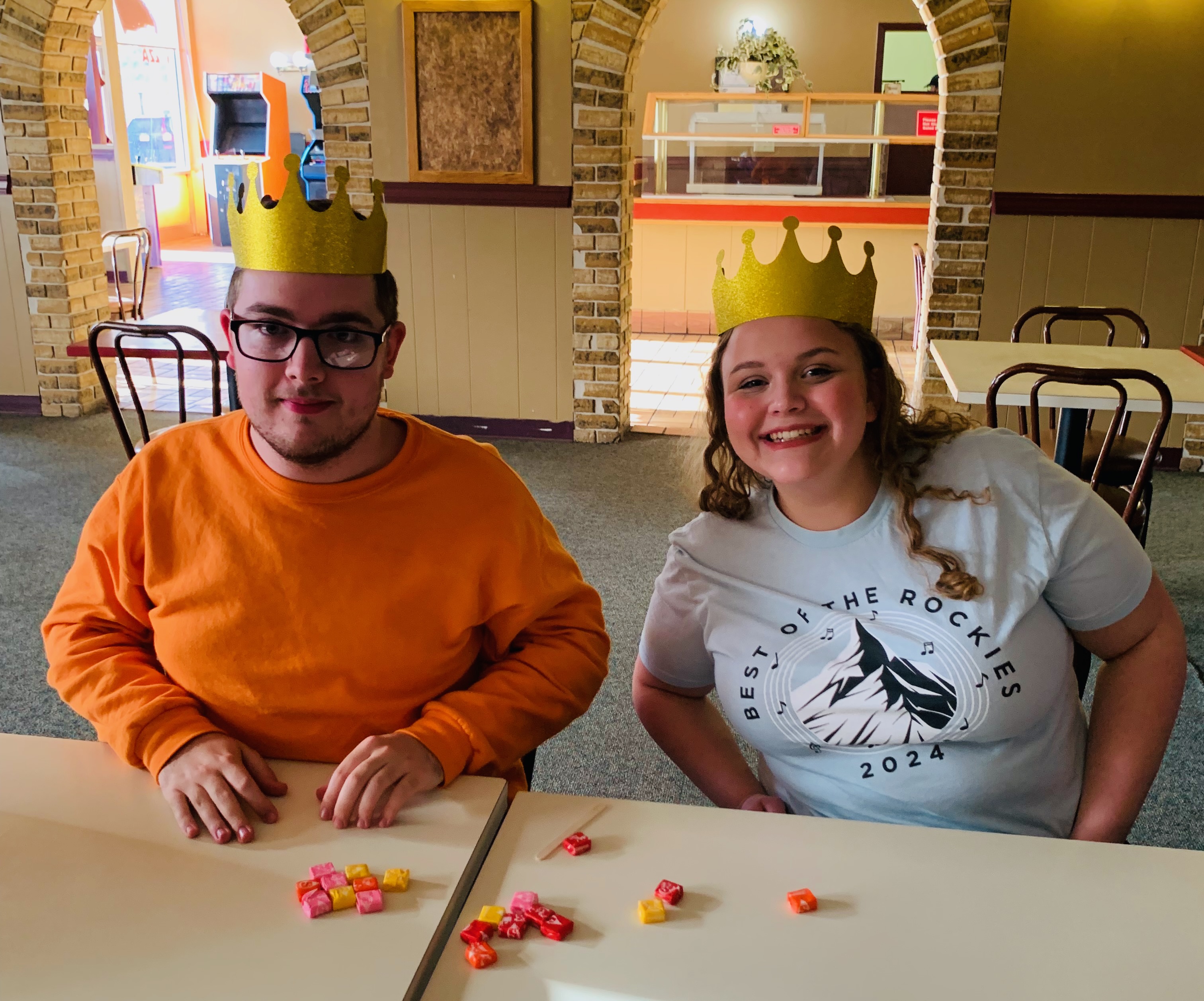
“It rubs off on you,” she said. “Whenever they’re excited about something, I try to match their energy times ten because I want them to enjoy it. The things that they enjoy, I want them to keep enjoying those things, because why not? It’s so much better to enjoy than to worry.”
And why worry when you’ve got a friend in your corner?
“You want to make them proud of themselves, too,” said Thrash. “I know it makes me really proud to be a part of their success. I’m just proud to be here.”
Scottsbluff’s motto is “Every Child, Every Day”, and Moore knows her district isn’t just sloganeering.
“We embody that motto, we really do,” she said. “The administration is always behind us, one-hundred percent. We’ve never been denied. We do what is best for kids, and this program is best for kids, and not just kids with disabilities. It has been really good.”
With everything going on, this year’s crop of senior paras hasn’t had much time to sit and think about the lasting impact they’re leaving on their school. But make no mistake about it, said Moore, their legacies will live on in all of the magic moments left to come.
“You walk in not knowing if you’ll be able to make a difference or not,” said Diaz. “But once you see that growth with your own eyes, it’s the best feeling ever.”
The 2023-24 Scottsbluff Peer Paras:
Aspyn Andreas
Grace Baker
Gabby Moore
Katalia Adams
Chloe Rendon
Payt'n Fix
Alycea Rodriguez
Amari White
Gavin Martinez
Brissia Diaz
Karen Torres
Henysi Gaona-Ailts
Lexxus Thrash
